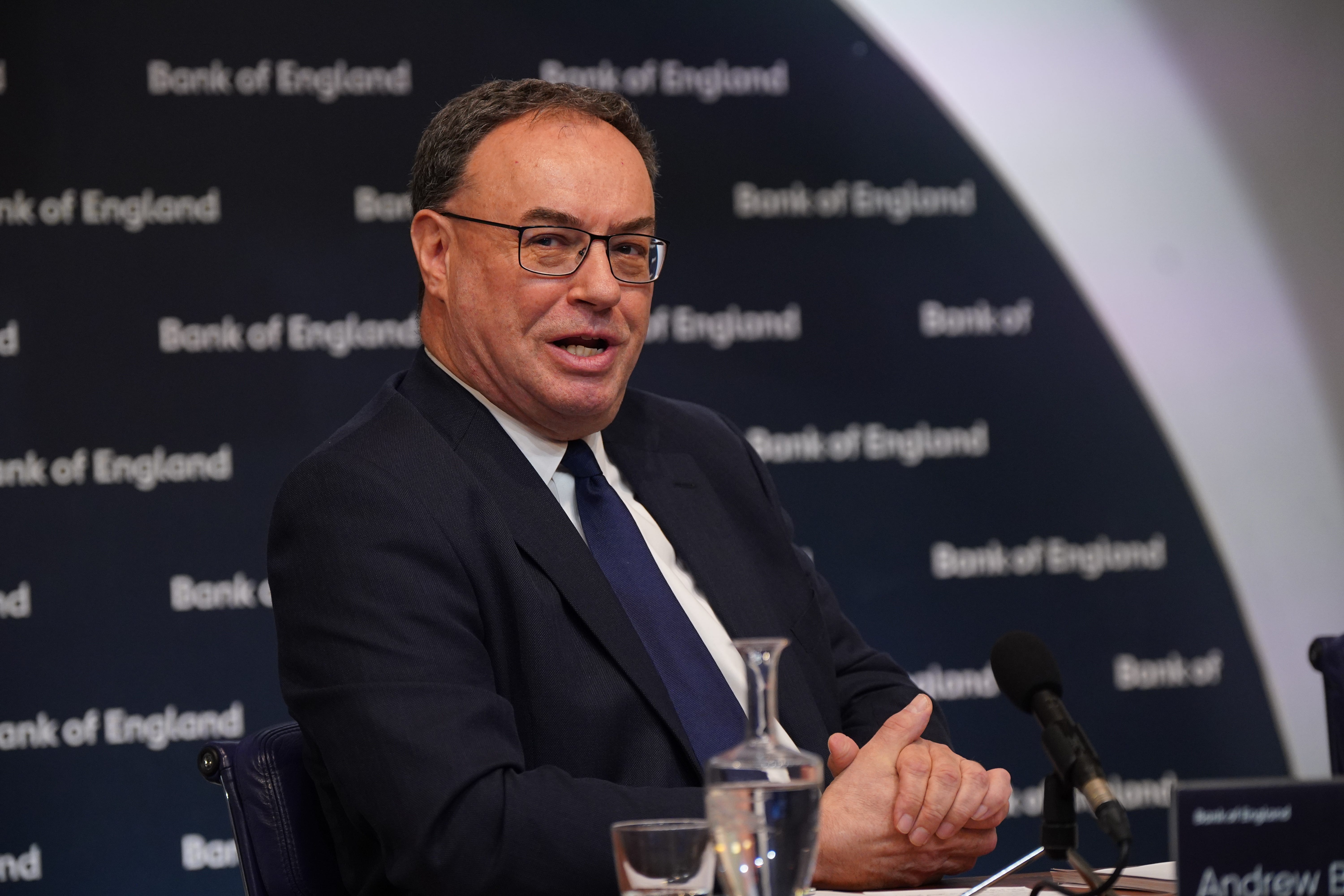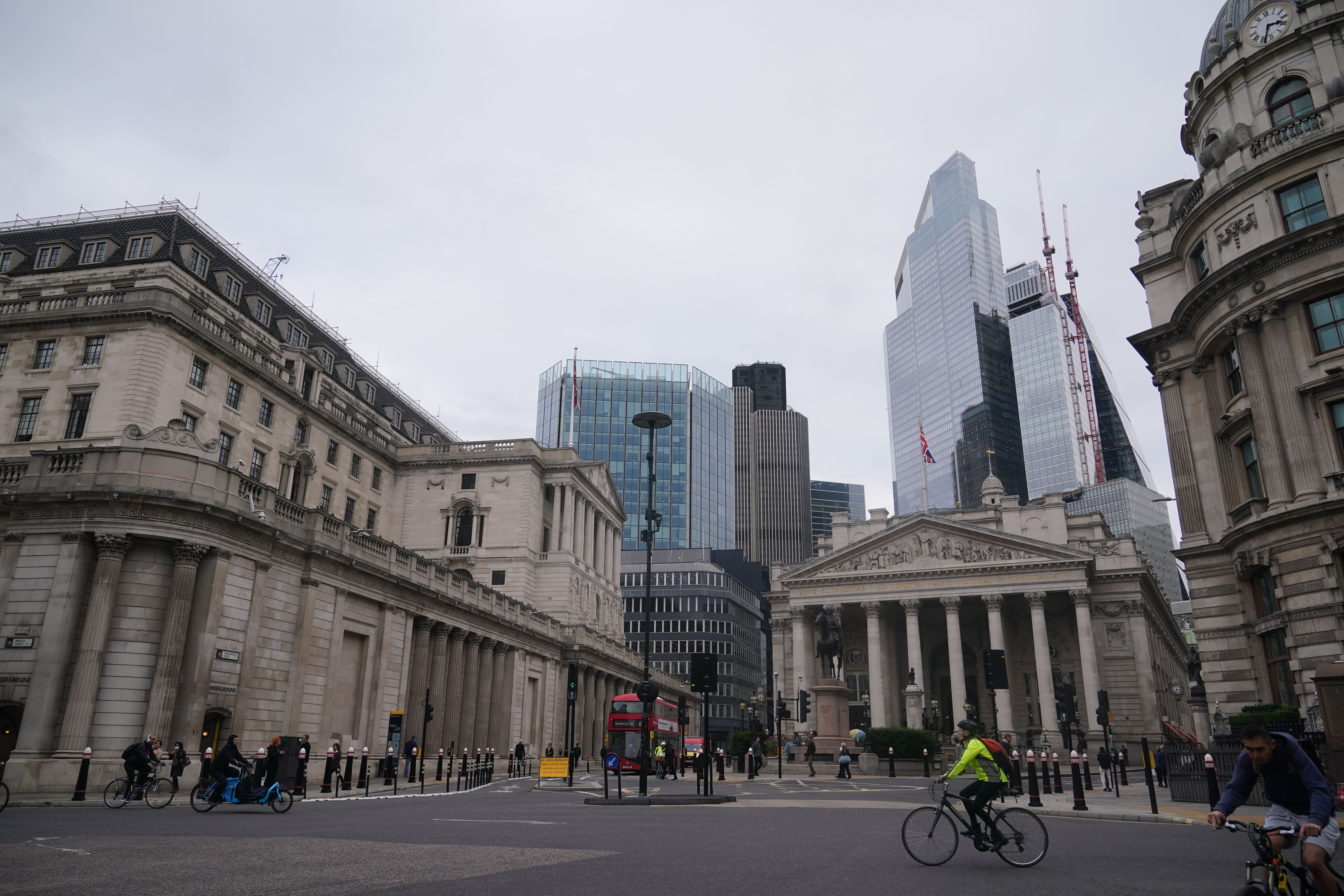Bank of England boss warns firms that raising prices will trigger higher interest rates
Bank governor Andrew Bailey speaks after increasing rates to highest level in 14 years

Bank of England governor Andrew Bailey has warned businesses that raising prices to “beat inflation” will force further rises in interest rates.
He urged companies to think twice before putting up prices, a day after the Bank’s Monetary Policy Committee hiked interest rates to a 14-year high of 4.25 per cent.
But industry leaders warned that firms could be forced to cut jobs or even go under if they followed his suggestion.
In an interview with BBC Radio 4’s Today programme, Mr Bailey said: “I would say to people who are setting prices, please understand: if we get inflation embedded, interest rates will have to go up further, and higher inflation really benefits nobody.
“If all prices try to beat inflation, we will get higher inflation.”

Mr Bailey said higher inflation “hurts people, and it particularly hurts the least well off in society”.
Food and drink prices have seen some of the sharpest price increases in recent months, along with energy bills. The UK Consumer Prices Index (CPI) inflation figure unexpectedly jumped in February, to 10.4 per cent.
Dairy products are among the food items that have shot up in price, with low-fat milk surging by 42 per cent in the year to February, cheese by 35 per cent, and eggs by 32.5 per cent.
Mr Bailey asked shops to bear in mind that inflation is set to drop sharply this year.
Kate Nicholls, the chief executive of UK Hospitality, which represents more than 750 companies with around 100,000 venues, said she supports the objective of reducing inflation, but added: “To suggest that the sector should stomach these staggering cost increases ignores the real and stark situation facing venues across the country.
“It is simply impossible if we want to have a viable hospitality sector left in a year’s time.
“No business wants to raise its prices, for fear of losing sales. We all want prices to be as low as possible for consumers, and it is a minor miracle that many have held off increases for as long as they have.
“The reality is that, without adequate government support, whether it is through energy, business rates or VAT, doing as the governor asks will just mean business failure and job losses, compounding the country’s economic woes.”
Unite said Mr Bailey’s acknowledgment of the role price rises are having on inflation marks a “step forward”, as blame has previously been pinned in part on workers asking for pay rises.
The union’s general secretary, Sharon Graham, said: “Andrew Bailey’s lacklustre acknowledgement of the role price rises are having on inflation is a step forward after years of targeting workers. However ... the UK is in the grip of a profiteering epidemic – it is greedflation, not workers’ wages, that is fuelling the cost of living crisis.”
Asked about Mr Bailey’s remarks, Downing Street said it is for individual companies to make their own pricing decisions.
Mr Bailey was previously criticised for suggesting that workers should avoid asking for inflation-matching pay rises because it helps to lock higher inflation into the economy.
It comes after Tesco chair John Allan said it is “entirely possible” that food producers are taking advantage of poorer consumers. Mr Allan said the company had “fallen out with suppliers” over price rises and is trying “very hard to challenge cost increases”.






Join our commenting forum
Join thought-provoking conversations, follow other Independent readers and see their replies
Comments